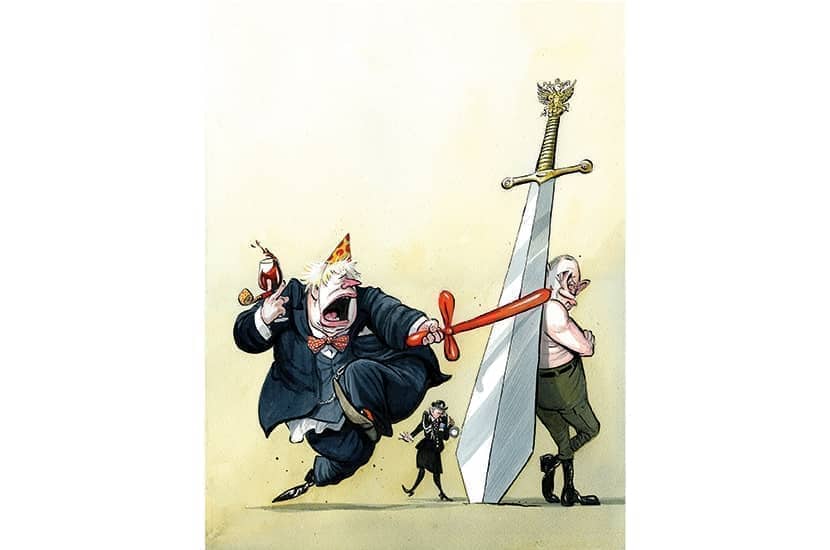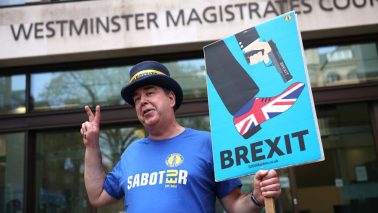What a lucky coincidence. At the start of a week that could see the ignominious collapse of Boris Johnson’s premiership, an opportunity to go fully Churchillian has appeared out of the blue. In an unprecedentedly detailed and direct memorandum, the British Foreign Office announced that it had exposed Russian plans to mount a coup in Kiev. Johnson was quick to back the alarming news with a grave warning to Vladimir Putin. ‘The intelligence is very clear that there are 60 Russian battle groups on the borders of Ukraine, the plan for a lightning war that could take out Kiev is one that everybody can see,’ Johnson told reporters on Monday. ‘We need to make it very clear to the Kremlin that that would be a disastrous step.’ The government also announced fresh shipments of anti-tank missiles and 30 trainers from the Rangers Regiment — leading ‘God save the Queen’ to trend briefly on Twitter in Ukraine.
What was the information that sparked the FCDO’s dramatic démarche? The report named five men the British government believes have been given the nod by the Kremlin to head a pro-Moscow government after a lightning Russian invasion. One is the former Ukrainian MP Yevhen Murayev, who lost his seat when his party failed to win 5 per cent of the vote in 2019 elections, and who the FCDO believes is being ‘considered as a potential candidate’ for the Kremlin’s Quisling president. Murayev is the owner of the Nash TV station — which Ukrainian regulators have been seeking to shut down since last year for airing pro-Russian propaganda. However, he’s actually banned from Russia, where prosecutors have frozen the assets of a firm belonging to his father. ‘I think the Foreign Office is confused,’ Murayev told the Observer, laughing. The other four men named by London as key plotters — former prime minister Mykola Azarov, former deputy secretary of the Ukrainian National Security and Defence Council Volodymyr Sivkovich, ex-deputy premiers Sergiy Arbuzov and Andriy Kluyev — have, by contrast, been exiles in Russia since 2014.








Comments
Join the debate for just £1 a month
Be part of the conversation with other Spectator readers by getting your first three months for £3.
UNLOCK ACCESS Just £1 a monthAlready a subscriber? Log in